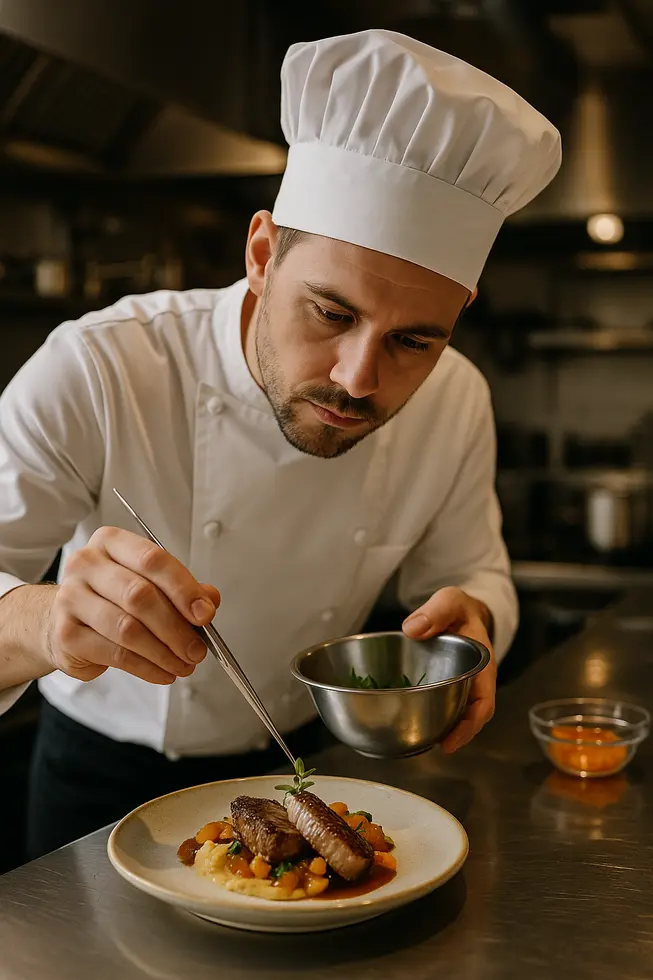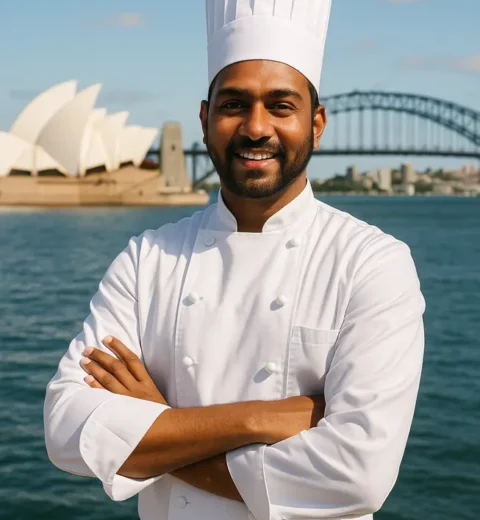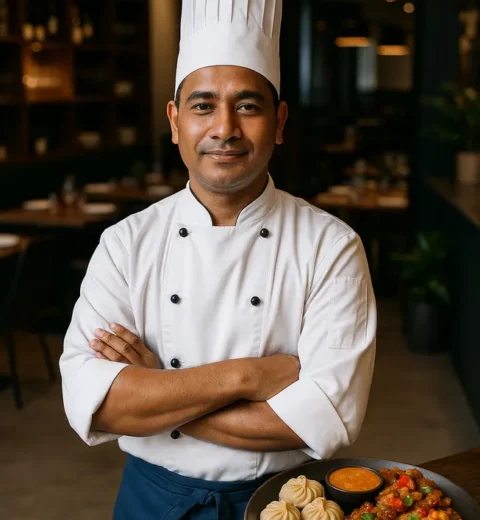The culinary landscape is evolving at an unprecedented pace as we approach 2025. For Australian restaurants and cafes aspiring to stay competitive, understanding the international trends shaping global cuisines is paramount. Culinary professionals are now expected to possess a range of diverse skills that reflect global influences and innovative techniques. This article delves into the critical abilities chefs need to succeed in 2025, from harnessing sustainable food practices to mastering the art of culinary storytelling through cultural heritage. Each chapter will provide in-depth insights that empower employers in the Australian culinary scene to make informed hiring decisions, ensuring their kitchens are at the forefront of the next gastronomic wave.
Mastering Sustainability: Skills Chefs Need for an Eco-Conscious Kitchen
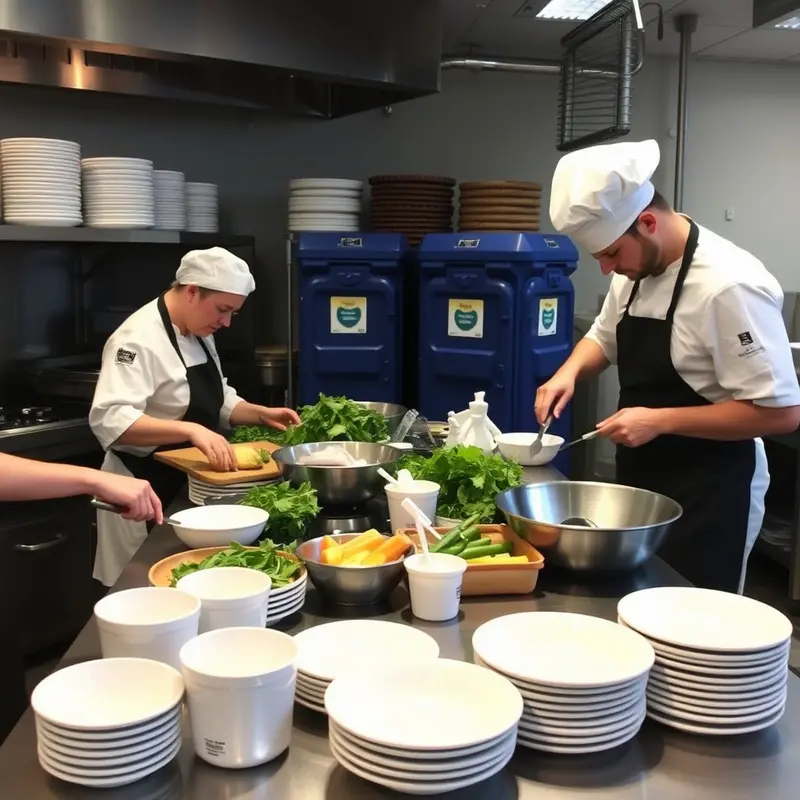
In the culinary world of 2025, chefs are expected to transcend traditional cooking roles and become stewards of the environment. Embracing sustainable practices is more than a trend; it’s an essential skillset. Moving away from single-use plastics is a crucial step. Chefs can champion change by switching to reusable alternatives like glass containers and stainless-steel utensils, or by buying grains and spices in bulk, reducing packaging waste.
Choosing eco-friendly materials also enhances sustainability efforts. Utilizing porcelain or ceramic for dinnerware, and employing natural materials like wood or food-grade silicone for kitchen tools, supports a reduction in non-biodegradable waste. Furthermore, chefs can substantially limit food waste by adopting strategic meal planning and smart shopping habits, such as purchasing perishable items in smaller quantities and opting for produce close to its sell-by date. Creative use of leftovers in new recipes is another skill that reduces wastefulness and promotes resourcefulness.
Composting offers chefs a way to turn organic waste into rich soil amendments, ultimately driving down landfill waste and nurturing sustainable gardening practices. A commitment to sustainable recipes, focusing on plant-based meals and local, seasonal ingredients, reflects a chef’s dedication to eco-conscious cuisine choices. Energy efficiency in kitchen operations is also imperative. Chefs should prioritize energy-efficient appliances and adopt cooking techniques like pressure cooking that conserve energy.
Finally, being a proponent of education within the community amplifies these efforts. Chefs can initiate kitchen gardens or workshops to spread awareness about sustainable practices, ensuring that their role extends beyond the kitchen and into the wider community. By embracing these diverse strategies, chefs can lead the way in transforming the culinary landscape into one that prioritizes sustainability and environmental responsibility.
The Smart and Sustainable Kitchen: Innovative Techniques Shaping Culinary Futures
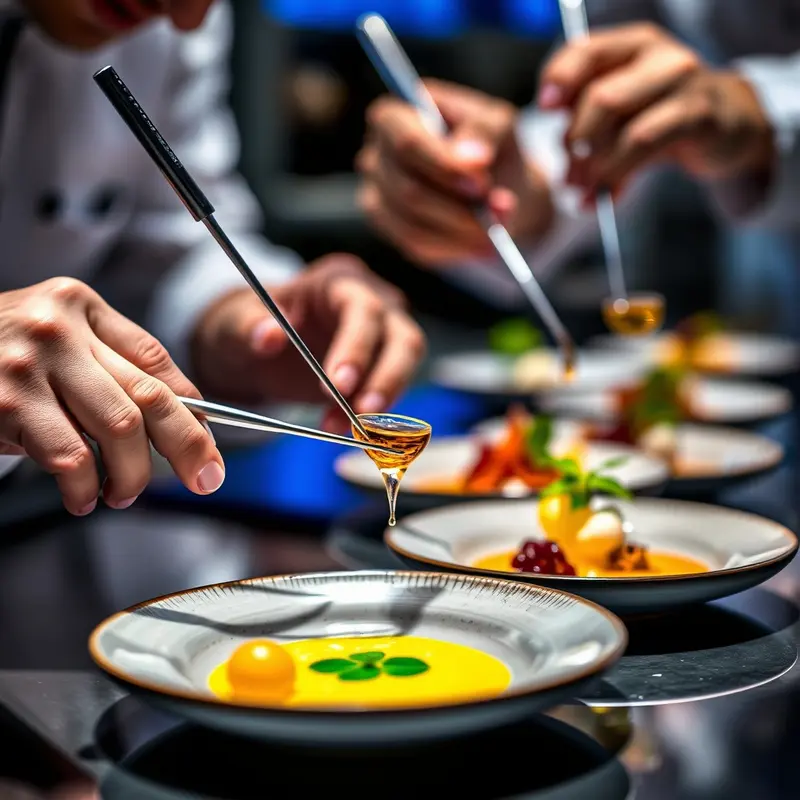
Innovative cooking techniques are transforming the culinary landscape, seamlessly blending the past with progressive technology and sustainable practices. At the heart of this evolution are smart appliances and AI-driven cooking, which have redefined kitchen capabilities. Devices that integrate stove, oven, and sous vide functions offer chefs precision and convenience. These technological marvels allow chefs to experiment with bold, boundary-pushing recipes while maintaining efficiency.
Central to this technological advancement is molecular gastronomy. By using techniques like spherification and foams, chefs manipulate ingredients at a molecular level to create awe-inspiring dishes that are as visually stunning as they are flavorful. This science-driven approach revolutionizes traditional culinary arts by enhancing taste experiences and presentation.
Another driver of culinary innovation is the personalization of meals through tech, which empowers both chefs and consumers to tailor dining experiences. App-driven meal planning and customizable ingredient kits ensure that dietary preferences and restrictions do not limit creativity or nutrition.
Eco-conscious approaches are increasingly important, with chefs practicing zero-waste techniques. By maximizing the use of every ingredient, from vegetable roots to meat offcuts, chefs not only reduce waste but also enhance their menu’s flavor complexity. Advances in plant-based innovations further contribute to a sustainable future, offering protein-rich alternatives that mimic traditional meat’s taste and texture.
These techniques embody a shift toward smarter kitchens where technology enhances creativity and culinary excellence, aligning seamlessly with sustainability goals. They elevate professional and home kitchens alike, proving that innovation and tradition can coalesce beautifully to meet modern culinary demands.
Cultural Storytelling: Weaving Global Narratives Through Cuisine
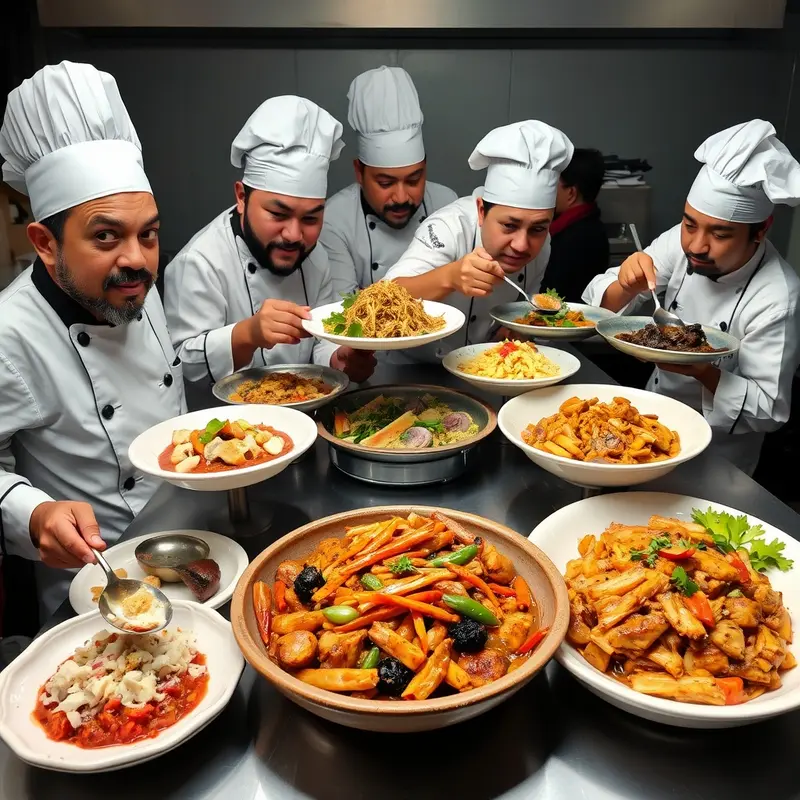
Cuisine acts as a vibrant tapestry that weaves together the threads of history, geography, and identity, presenting a flavorful narrative of a community’s heritage. Chefs embracing global culinary trends in 2025 must delve beyond recipes to understand the rich stories each dish tells. Traditional foods like coastal seafood dishes or mountain-inspired meat stews narrate tales of environment and lifestyle specific to their origins, enriching the texture of the culinary arts.
As chefs curate menus with bold international flavors, understanding these stories adds depth to their creations. For example, in a restaurant setting, intricate tales of how certain ingredients traveled across borders through trade or migration can captivate guests, transforming dining into an educational and cultural experience. This dimension of cultural storytelling extends to menu design, where the collaboration between chefs and event planners can authentically reflect the client’s heritage or the cultural significance of a celebration.
The presentation of food further enhances these narratives, with each culture offering unique aesthetic expressions—be it the simplicity of Japanese cuisine or the elaborate plating of other traditions. These visual elements are not mere decoration; they embody cultural values, adding an additional layer to the gastronomic story.
Culinary storytelling also plays a role in the dialogue around authenticity and identity. In an increasingly interconnected world, chefs use this medium to challenge dominant narratives and celebrate the diverse voices that contribute to the culinary landscape. Thus, food becomes more than sustenance; it is a vessel for preserving culture and fostering understanding across generations and communities.
Digital Revolution in the Culinary World: Navigating New Skills in 2025
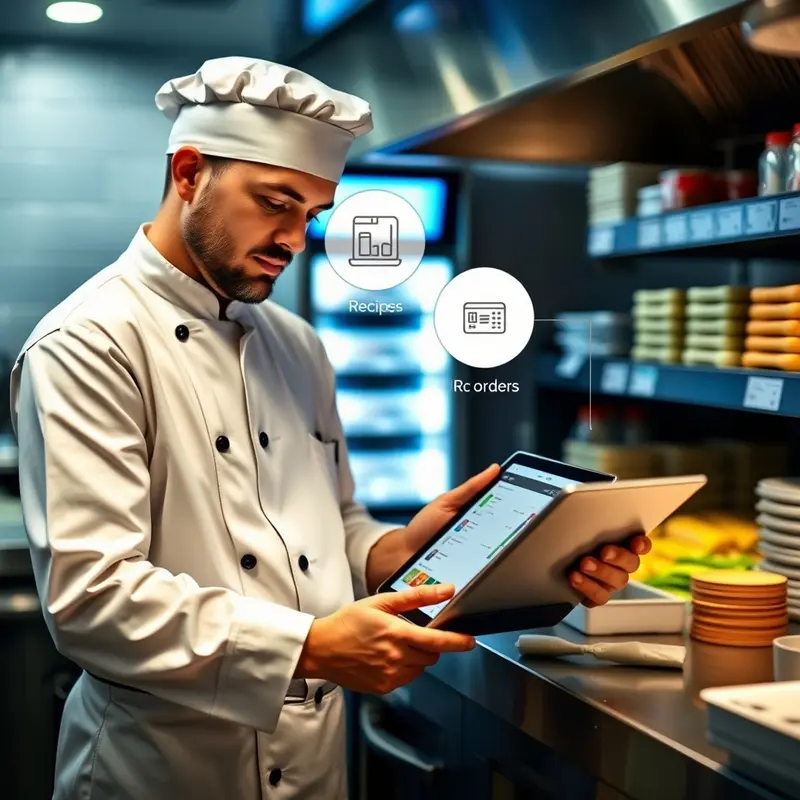
The culinary world is experiencing a digital transformation that is reshaping traditional kitchen dynamics and enhancing the art of cooking for 2025. As technology weaves itself intricately into the fabric of culinary arts, it beckons chefs to arm themselves with new skills that extend beyond the mastery of their craft. This digital revolution is multifaceted, affecting everything from how we manage menus to the way we engage with customers.
Digital menu management systems are revolutionizing the dining experience. These systems allow for real-time updates, reduce errors, and provide detailed dish information, thereby enhancing customer satisfaction. The era of static menus is over, replaced by interactive platforms that bring dishes to life with vivid descriptions and nutritional data.
Social media has become an indispensable tool for chefs and culinary establishments. It’s not just about having a presence; it’s about building a brand and connecting with a global audience. Harnessing the power of influencer marketing, chefs can reach new customer bases and introduce their culinary innovations to a wider audience.
Furthermore, smart kitchen technologies automate mundane tasks, streamline operations, and ensure consistency in quality, allowing chefs to focus on creativity and innovation. Digital platforms also provide educational opportunities, offering online courses and training on the latest technological advancements in food safety and kitchen management.
Incorporating digital payment and customer feedback systems is another leap forward. They expedite transactions and gather vital customer insights, fostering a responsive and adaptive dining environment. Thus, as chefs embrace digital skills, they not only ensure their relevance in an evolving industry but also elevate the dining experience, blending tradition with cutting-edge technology.
Final thoughts
Staying ahead in the culinary industry requires more than just traditional skills. As seen throughout this exploration, chefs who excel in sustainable practices, innovate with new techniques, express cultures through cuisine, and leverage digital tools are set to lead the gastronomic field in 2025. Australian restaurant and cafe owners should focus on recruiting chefs who not only possess these skills but also have a vision aligned with the upcoming culinary trends. By prioritizing these global competencies, establishments can ensure their offerings resonate with both local and international diners, embodying the future of dining excellence.
Empower your kitchen with skilled chefs ready for 2025. Contact Us today!
Learn more: jobsrecruiter.com.au/contact-us
About us
Our recruitment agency specializes in connecting Australian restaurant and cafe owners with chefs who excel in future-ready culinary skills. We understand the nuances of your needs and provide candidates who are adept in sustainable practices, innovative cooking methods, cultural storytelling, and digital proficiency. Let us help you lead in the culinary world by hiring the right talent.
